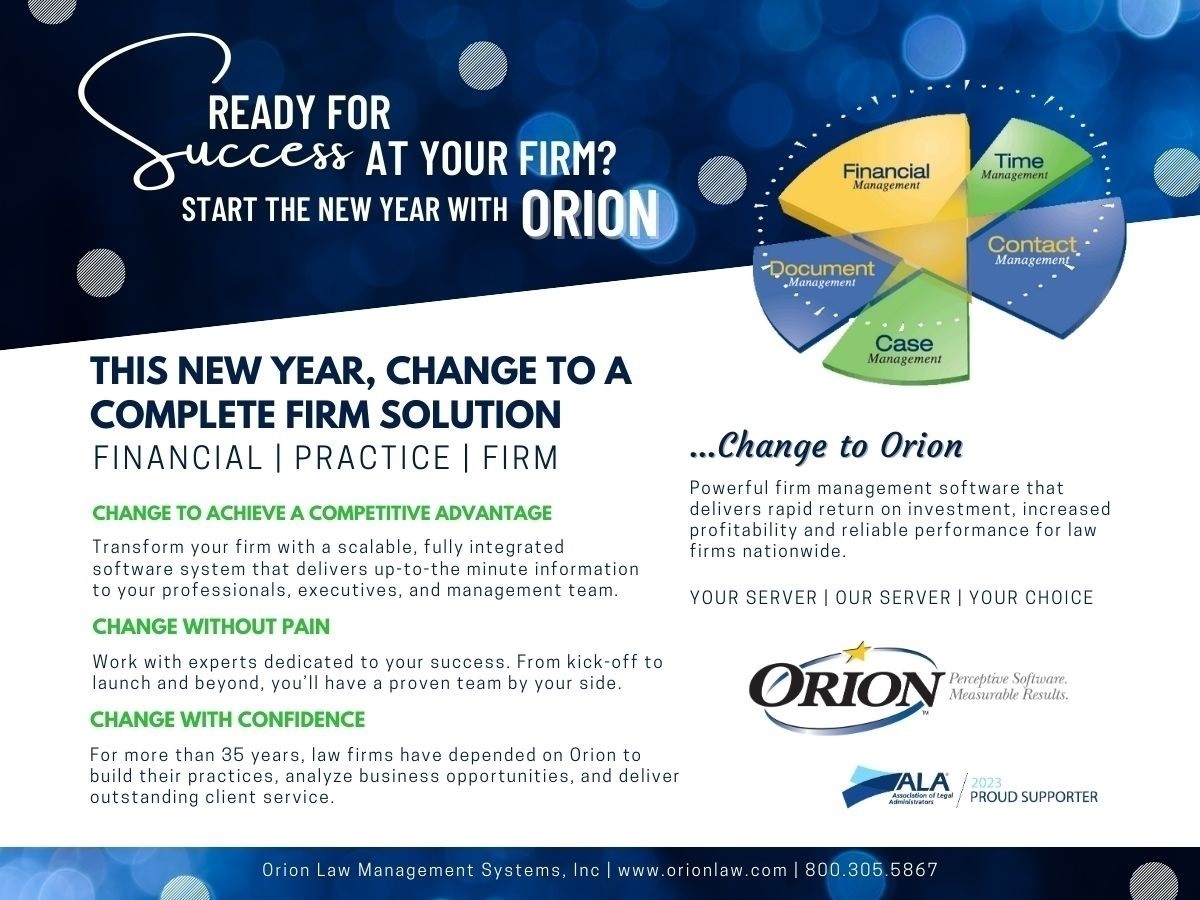However, paralegal and associate burnout is not always visible. Take into account that there is a plethora of studies on lawyer burnout, but little to no research has been done on what happens to support staff in these environments. Much of the time, they’re silently struggling to keep up.
“Paralegals and associates are often overburdened with work, especially in firms with a high case volume,” says Jaclyn Roberson, Senior Partner at Roberson Duran Law, PLLC, in San Antonio, Texas.
Because of this, it’s absolutely crucial for law firms to allocate work to paralegals and associates in reasonable and manageable ways. It will not only help support staff be more productive, but it can also result in better overall attitudes in the workplace.
“Allocating work fairly can eliminate complaints and resentment,” says Roberson. “It can also boost morale and make each team member feel respected.”
Here are some ways in which law firms across the country are distributing work to paralegals and associates and, at the same time, ensuring fairness all around.
ASSESS CURRENT WORKLOADS
First, firms need to assess the current workload for paralegals and associates. At Sugarman, Rogers, Barshak & Cohen, P.C., the firm has an intake committee that monitors associates’ and paralegals’ workloads and assigns new work based on their capacities.
“Many times, requests come in for specific assignments, and the committee evaluates those in conjunction with the larger universe of capacity and availability of the associates and paralegals to ensure no single person is overloaded,” says Christopher B. Hunt, Executive Director at the firm and an Independent member.
The committee at Sugarman, Rogers, Barshak & Cohen, P.C. will look at the current workload assigned, what type of work is being done, the capacity to take on additional work, and if there are areas for development or improvement that an assignment can advance.
“The aim is to provide as much opportunity as possible and exposure to many areas of development,” says Hunt.
ASSIGN CASELOADS BASED ON CLIENTS
Having paralegals and associates assist certain partners may not work for every firm. Furthermore, it could be causing burnout. Instead, firms might consider assigning based on clients.
“Assign caseload based on clients, not attorneys,” says Emily Porter, Executive Director at Renner Otto and an Independent member. “Standardization comes relative to the clients’ treatment rather than the attorneys’ preferences, and then you can more easily identify true burden on the paralegal.”
“Allocating work fairly can eliminate complaints and resentment. It can also boost morale and make each team member feel respected.”
Additionally, Porter noted that firms need to weigh support staff’s strong points as well. “You have to take into consideration that not all paralegals are created equal,” she says. “You need to identify people’s strengths so that you’re utilizing individual strengths.”
It might also mean bringing on more staff. Law firms, especially midsized ones, are facing staff shortages in the aftermath of the pandemic. According to the 2023 Midsize Law Firm Priorities Report from ActionStep, 92% of firms surveyed reported staffing or resource shortages. Now more than ever, it’s critical to make sure that robust teams are in place to handle the workloads coming in.
“Many law firms are understaffed,” says Roberson. “If necessary, bring on new team members to help with the workload.”
LET TECH HELP
There are a number of case management software offerings that can help track workloads. For example, Shepelsky Law Group uses CLIO for case management, because “this platform can simplify task assignment and monitoring, enabling firms to track and manage deadlines, priorities and tasks,” says Marina Shepelsky, Esq. “This guarantees transparency and accountability in the work allocation process. Furthermore, scheduling regular team meetings can promote effective coordination and alignment for ongoing and upcoming assignments.”
When looking for the right case management software, firms should make sure that it’s accessible from anywhere, according to Eric Wangler, President North America at BigHand.
“Firms need a task delegation solution that is easy to access from where the lawyers typically live, whether that is the [document management system], their email or mobile device,” he says. “Ultimately, lawyers and support staff benefit from this as it reduces the administrative burden on lawyers, improves service and avoids employee burnout.”
ENCOURAGE OPEN COMMUNICATION
Firms must encourage paralegals and associates to speak up when they need something, as well as put processes in place that push for open communication among all team members.
This could include creating an open forum, holding weekly staff meetings with firm management, making meetings enjoyable and asking people to submit suggestions for improvement, according to Porter.
“By setting realistic expectations for working hours and building a supportive culture that values personal well-being, firms can reduce stress and prevent burnout among their staff.”
“Communication and communication style are by far the most important skills to hone when it comes to happy paralegals and happy firms,” says Porter.
REMEMBER TO EMPHASIZE EMPLOYEE WELLNESS
You’re hearing a lot about employee wellness these days because it matters.
“By setting realistic expectations for working hours and building a supportive culture that values personal well-being, firms can reduce stress and prevent burnout among their staff,” Shepelsky says.
Once firms have figured out what processes to use and systems to put into place, they need to build their employee wellness programs as an additional way to ensure employees are satisfied and productive. At the Lovely Law Firm, employee wellness includes massage days, firm dinners and happy hours outside of the office.
“Staff needs a break just as lawyers do,” says Justin Lovely, the firm’s Founder and Partner. “We have also implemented a community service working day each month where the whole team gets out of the office and helps local charities. Staff and attorneys are paid, and they are making a difference in local nonprofits. It’s a win, win, win scenario for all involved and helps with the daily grind.”
Shepelsky encourages her employees to take breaks, prioritize self-care and use their vacation days in order to promote work-life balance.
And when work is allocated fairly, employees will have what they need to succeed — and law firms will reap the benefits.
“It creates a positive and inclusive work environment, where trust, morale and teamwork among team members thrive,” says Shepelsky. “This ultimately enhances overall productivity and job satisfaction within the team.”


